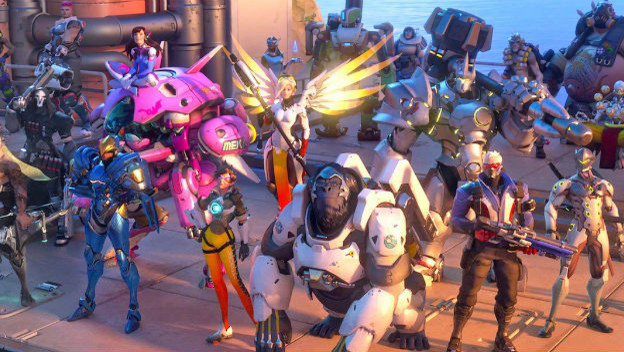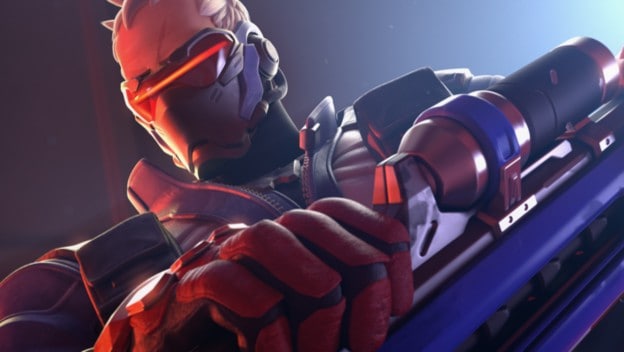Blizzard did the apparently unthinkable and, in expanding the popular Overwatch universe through a short story, revealed that Soldier: 76 identifies as gay. It was a small moment in the story, a piece of the overall Soldier: 76 puzzle, and even the first real look at the character’s personal life. Of course, this getting out in the world immediately caused the usual internet feces-flinging, with people arguing about whether or not so-called “SJWs” are ruining video games with “forced diversity.” There was also some discourse on if this style of lore expansion is a helpful form of representation, but that’s a discussion for another time. Instead, I want to focus on the use of the word, “forced.” Apparently, whenever something happens in a game that includes representation of people who are not, well, straight or white, it’s being “forced.” I see it all the time. And it’s capital-G Garbage.
It’s easy to dismiss stuff like this, because you generally only see it in angry, poorly-written comments or YouTube videos that inexplicably show up in your recommendations. But since we’re making an argument here, it’s appropriate to at least try and find a consistent definition for forced diversity. “Try” is the operative word here, because looking for a consistent reaction to the Overwatch thing, for example, is an exercise in chasing moving goal posts. One comment I found was calling the story “propaganda,” accusing Blizzard of pandering to the LGBTQ community and trying to shoehorn in something that wasn’t there before. Other arguments I found elsewhere, such as Quora and Reddit, suggested “forced diversity” is essentially the act of inserting characters to meet marginalized tick boxes for the sake of having them present, without bothering to develop them properly as characters.
I’ve seen another style of argument too, that there’s this pressure from people in marginalized groups on creators essentially forcing them to pander or write characters to fit in certain boxes. Rather than creators being able to write the characters they want to write (presumably buzzcut white dudes like most games ten years ago), they’ve having to make people happy by ticking boxes, again to no notable storytelling ends. This sounds strikingly familiar to certain arguments about affirmative action in places like workplaces and education, the idea that affirmative action takes opportunities away from “the best person for the job” in favor of someone who meets a quota (and has implied inferior credentials).
None of this really holds water when it comes to scrutiny, though. There is plenty of evidence out there that without affirmative action, recruiters often default to “white-sounding” names for their picks, statistically speaking. And nobody who is a creative in video games is having a gun pointed at their head by random Twitter users to include more women or non-heteronormative characters in their stories. If a character is underdeveloped, that’s just flawed writing and it’s everywhere else too (like, the entire Gears of War franchise is a thing). And, well, a detail coming out of supplemental lore material identifying a character as gay isn’t pandering or propaganda. It’s a story continuing to develop, and possibly something that has been in the works for a long time. Nobody but the people on the Overwatch team know the finer details, and presuming to know them makes one look just as silly as those who think yelling about the Raimi suit in Marvel’s Spider-Man made it happen.

The truth is simple. Diversity is happening in media like games, TV, movies, and such, because more diverse people are involved in creating them than before. And creativity and art is already a more diverse space than most by its very nature. If it seems like a shocking difference compared to before, it’s because people are more connected now than ever before. We all have instant connection to the rest of the world in our pockets, and that didn’t exist when DOOM was new.
Because of that visibility, marketing has changed. Indie games are also more popular and lucrative than ever, which broadens the content pool that much more. It isn’t just assumed that only dudes play video games anymore, because evidence of the contrary is more apparent, even to people who may have been more resistant. Diversity reflects real life. Nobody is forcing it. It just is.
